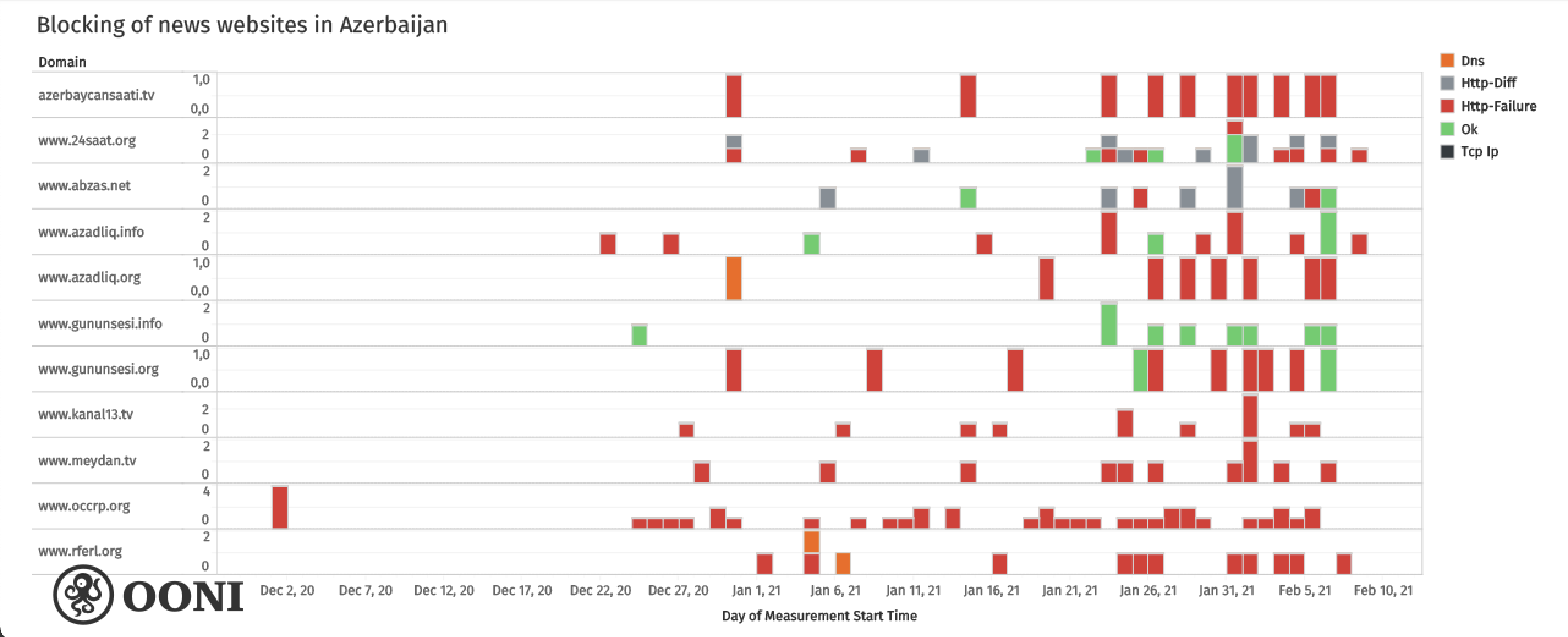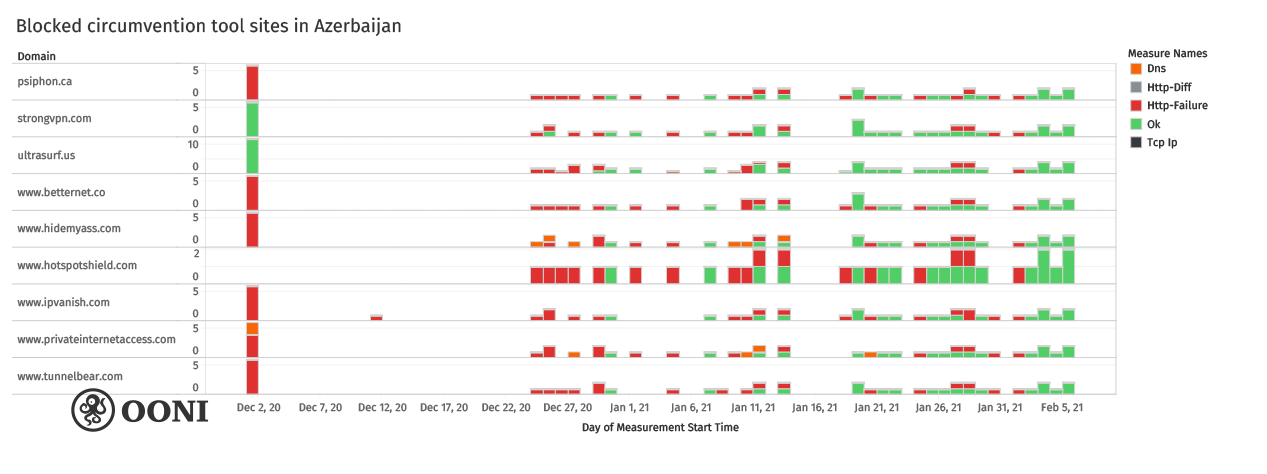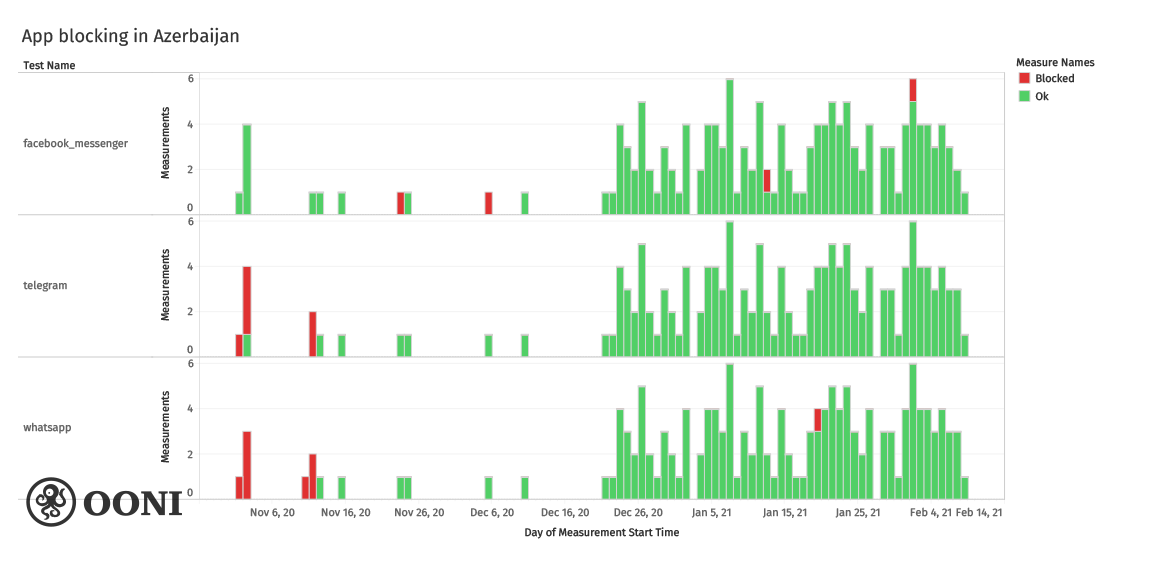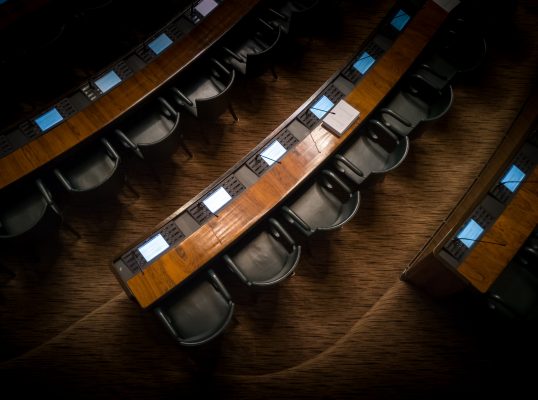Azerbaijan started blocking access to independent news websites in 2017 [more on how this blocking has taken place here]. At the time, the state argued the reasons for blocking these websites were, calls aimed at “forcible change of the constitutional order,” “organization of mass riots,” and other illegal activities. In reality, these websites were considered independent and/or platforms affiliated with opposition parties. As a result, the decision to block them was based on legal claims that lacked evidence. This was further reflected in the review process when the decision to block these platforms was implemented. According to EHRAC, “no effective and independent review took place in the first instance decision to block access to the websites in 2017, and in subsequent appeals. The courts simply accepted the authorities’ allegations at face value and made no attempt to adequately consider or explain why the content was unlawful.”
The intentions behind the blocking decision were further reflected in subsequent actions taken by the Government of Azerbaijan against the online platforms. Such that, at the time of the first decision to block these websites for access in 2017, the Azerbaijani Government claimed these websites continued disseminating their content through VPN services or social media platforms and therefore the action taken against them did not cause significant changes to the published content. However, in February 2020, the Ministry of Transportation, Communications and High Technologies “requested the domestic courts to impose a ban on the applicants’ ability to share their content through VPN services and social media platforms.”
In a report published in February 2023, in partnership with OONI, we identified the blocking not only continued but expanded to blocking news websites from other countries as well as social media platforms [OONI measurements collected from Azerbaijan between January 2022 to February 2023]:
- Blocking of news media websites. Azerbaijan continues to block access to several independent news media websites. OONI data also suggests that some ISPs in Azerbaijan may have started blocking access to the Guardian on 25th December 2022.
- Azerbaijan and Russia block each other’s news media. In early June 2022, Azerbaijan started blocking access to Russia’s state-run RIA Novosti media website. Since (at least) 7th June 2022, Russian ISPs have been blocking access to Azerbaijani news media websites (`haqqin.az`, `minval.az`, `oxu.az`, `ru.oxu.az`, `ru.baku.ws`). These blocks remain ongoing.
- Temporary blocking of TikTok amid border clashes with Armenia. During the September 2022 border clashes, both Azerbaijan and Armenia blocked access to TikTok. While the TikTok block was lifted in Armenia by 21st September 2022 (only lasting about a week), the TikTok block remained in place in Azerbaijan until November 2022 (lasting about 2 months).
- Blocking of circumvention tool sites. Azerbaijan continues to block access to numerous circumvention tool websites, potentially limiting the ability to circumvent internet censorship in Azerbaijan. However, most OONI measurements suggest that tested circumvention tools (Tor and Psiphon) appear to be reachable.
- Variance of censorship across networks. While most ISPs in Azerbaijan appear to adopt similar censorship techniques (as we continued to observe connection timeouts in most anomalous measurements across ASNs), different ISPs block access to different websites over time.
The intentional blocking and total control in the hands of the state in implementing these blocks were once again highlighted in June 2023 when co-rapporteurs from the Parliamentary Assembly of the Council of Europe (PACE), Jan Liddel-Granger and Liz Kristoffersen visited Azerbaijan. According to reporting by Meydan TV, throughout the visit of the co-rapporteurs access to blocked websites was restored.
In the past, a similar temporary lifting of restrictions was observed in Azerbaijan during visits of international organizations.
![Azerbaijan blocks RIA Novosti – Russian language state news website – citing violation of the national law [Updated June 13]](https://www.az-netwatch.org/wp-content/uploads/2022/04/michael-dziedzic-0W4XLGITrHg-unsplash-532x400.jpg)





